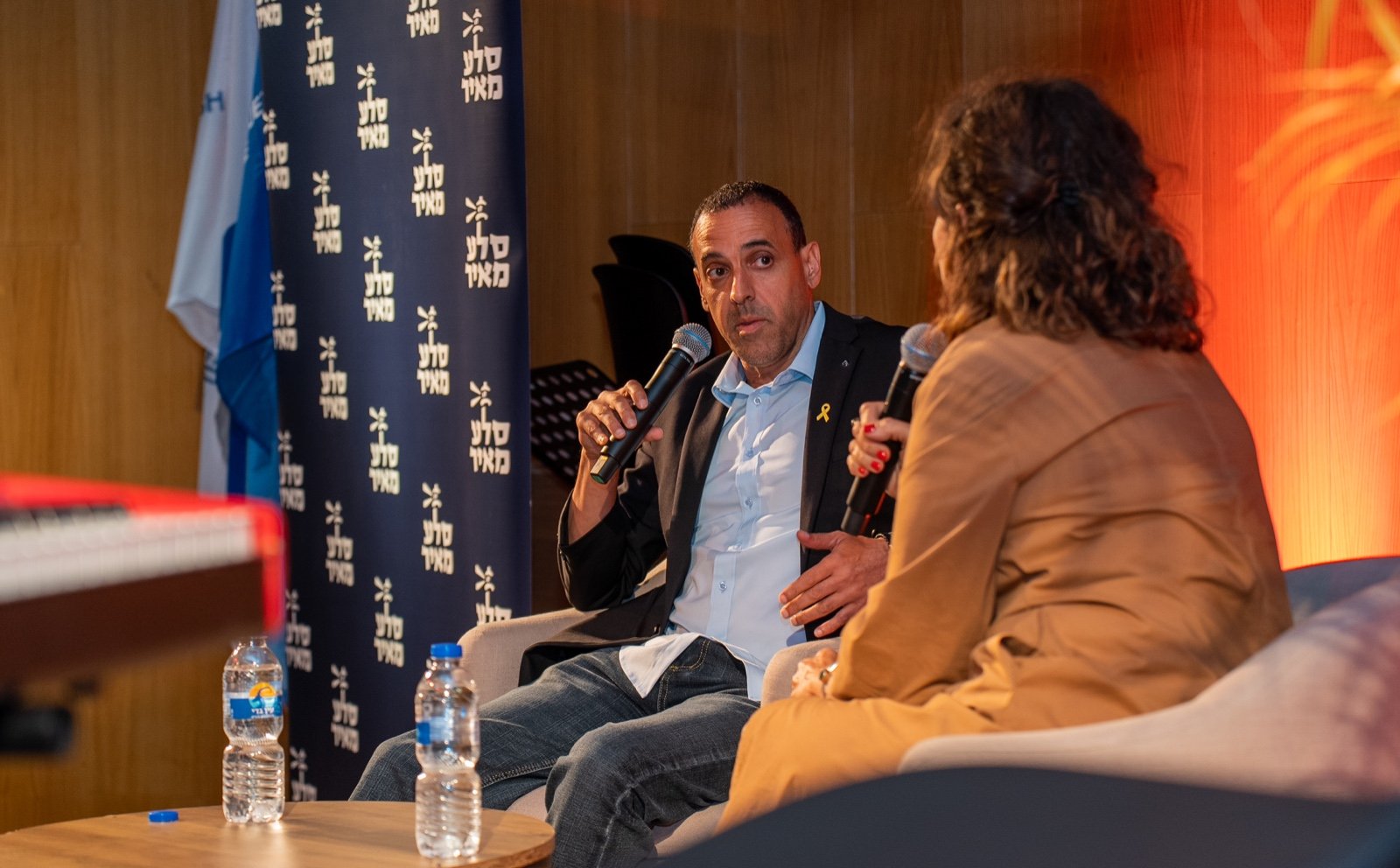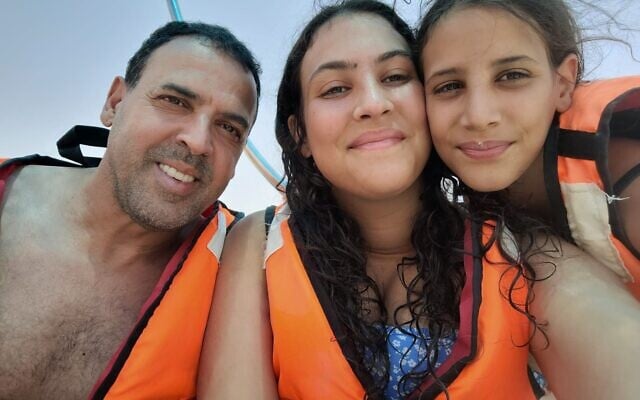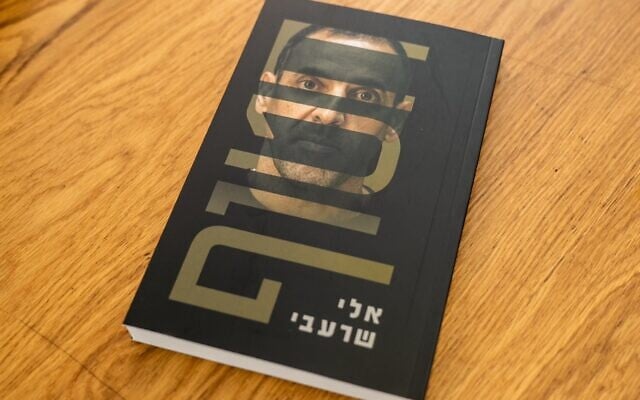



Just a few months ago, this scene would have been unimaginable: Eli Sharabi, free, and standing before a crowd at a Tel Aviv museum to launch a book about his 491 days as a hostage in Gaza.
Even now, as he speaks publicly for the first time in this kind of setting, dozens of hostages – including people he was held with – remain just a few kilometers away, still trapped underground.
“I never looked at death as an option,� Sharabi told the packed auditorium at the ANU Museum at the Jewish People. “I always chose life.�
More than 300 people gathered Thursday to mark the publication of ‘Hostage’ – the first memoir written and published by a returned Israeli captive. The event was part memorial, part tribute, and part national reckoning.
Sharabi, 52, was abducted from his home in Kibbutz Be’eri on October 7, 2023 during Hamas’ onslaught. His wife Lianne and daughters Noiya, 16, and Yahel, 13, were murdered that day. His brother Yossi was also kidnapped and murdered by his captors, who still hold his body.
Sharabi was held in Hamas captivity for 491 days and was released on February 8 as part of a temporary ceasefire deal brokered by Qatar, Egypt, and the US.

The evening included a reading of Sharabi’s book by actor Uri Gavriel, a musical performance by singer Yuval Daniel – the favorite singer of his late daughters – and Sharabi’s niece, and an onstage interview led by actress Tzufit Grant. It also served as a tribute to those who supported Sharabi and his family throughout his captivity and return.
“Hostage,” published by Sella Meir Publishing House, was written over two months and is the first memoir published by a released hostage.
“He told me two things: ask me everything, and do what is needed,� Rotem Sella, founder of the publishing house, said of his first meeting with Sharabi, 48 days after his release.
“It’s not an exposition or reflection – it’s his first-person account of what he experienced on October 7 until his release,â€� he said, adding that Eli’s fluent Arabic gave him a deeper understanding of the situation. “The goal is to bring the world into the Hamas tunnels and raise awareness.â€�

Orders for the book have already broken records in Israeli publishing, and it is expected to be available in stores nationwide next week. The book has also been translated into English by Eylon Levy, a former government spokesperson, and Sella says an English-language edition will be published soon.
“Eli Sharabi’s raw and unfiltered memoir of captivity is a historic text, which I’m sure will become a defining classic of October 7 literature,” Levy told the Times of Israel. “Many books will be written about the dungeons of Gaza, but this will always be the first.â€�
“When you read this book, you see how he survived for his family, for Alon, and to help bring home the other hostages,� said Sella, referring to Alon Ohel who was held with Sharabi and remains in captivity.
Onstage, Sharabi’s voice remained steady as he recounted scenes from captivity; moments of terror, fleeting hope, and finally the joy of his relief on being freed mixed with despair upon discovering that his wife and daughters – whom he believed throughout his captivity to be alive – had not survived October 7.
“I’m glad I didn’t know they were dead,� he said. “Because thinking I would return to them is what kept me going.�
Throughout his time in captivity, Sharabi said he leaned heavily on ritual and faith – reciting morning blessings, repeating the Eshet Chayil blessing in honor of his mother and wife. He urged the younger hostages he was held with to resist despair.

“In captivity, you look for anything that gives you strength,� he said. “I told the young people: this isn’t a time for ego. We are returning.�
He described the terror of IDF airstrikes, the fear of being discovered by Gazan civilians and lynched, and one of his most emotionally shattering moments: stepping into the Red Cross vehicle that would take him to safety.
“I imagined my wife and kids running to me,� he said. “Of course, that didn’t happen.�
Even now, he said, his grief and memory are constant.
“I don’t need Memorial Day to think of them,� he said. “They’re in songs, in conversations, in memories. I know they would be proud of me.�

Sharabi was held in Hamas captivity at first alongside a Thai worker and later with fellow Israeli hostages in tunnels including Ohel, Eliya Cohen, and Or Levy. He was also held alongside Ori Danino, and Hersh Golberg-Polin, who were later murdered by their captors in August 2024.
Ohel remains in captivity, and it is for him and the remaining 57 hostages that compelled Sharabi to write the book.
“It was important to me that the story come out as quickly as possible, so that the world will understand what life is like inside captivity,� he told the Times of Israel. “Once they do, they won’t be able to remain indifferent.�
“This is an experience that no one should go through,â€� Sharabi added. “But people should also know that they can always choose, that in every situation – even the darkest one – you can always choose humanity.â€�
Paraphrasing the late Hersh Goldberg-Polin, he said: “People who have a ‘why’ can find the ‘how’ – they can survive, rise again, and build a life.â€�
